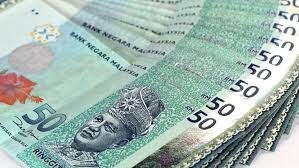Malaysian Stocks, Currency Rise After Anwar Was Named As Prime Minister

April Maily
KOTA KINABALU: Malaysian stocks rose 4 percent on Thursday, the biggest jump in over two years, and the ringgit gained 1.77 percent against the US dollar hours after opposition leader Anwar Ibrahim was named prime minister.
Pakatan Harapan’s (PH) chairman, Datuk Seri Anwar Ibrahim, was sworn in as the 10th prime minister five days after the general election ended in a hung parliament. His reformist coalition won the most seats with 82.
Within hours of his appointment, the benchmark FTSE Bursa Malaysia KLCI Index increased 4 percent to close at 1,501.88 points, and the ringgit surged 1.77 percent to 4.4910 against the US dollar.
The market performance has certainly marked a good start for the new prime minister.
Vishnu Varathan, head of economics and strategy at Mizuho Bank in Singapore, said that Anwar’s appointment produced “some certainty” on the country’s leadership given his “charisma and proclivity to bridge differences to form a government.”
“The hope is that this is indeed a lasting resolution of disruptive political shifts rather than an unstable equilibrium,” Vishnu told Bloomberg on Thursday.
Shankaran Nambiar, a senior research fellow at the Malaysian Institute of Economic Research (MIER), believes that Anwar has what it takes to advance the nation’s economy, considering his prior experience as finance minister.
Anwar served as deputy prime minister from 1993 to 1998 under the former administration of Tun Dr. Mahathir Mohamad and as finance minister from 1991 to 1998, according to a report by Bernama.
During the 1997 Asian financial crisis, Anwar supported free market principles, an economic system in which people are free to engage in economic activities and transactions without government interference.
The veteran politician also endorsed debt cancellation initiatives for poor countries when he served a two-year term as chairman of the Development Committee for the World Bank and International Monetary Fund (IMF) in 1998.
“Given Anwar’s track record and policy stance, I think his appointment as PM will spur confidence in the market,” Shankaran told Free Malaysia Today (FMT) on Thursday.
“Anwar being market-friendly, his first order of the day will be to reassure foreign investors of Malaysia’s readiness to improve its standing as a destination for investments. I am sure he will undertake a quick overhaul of policies,” he added.
International media described Anwar’s election victory as a huge comeback after his decades-long struggle to become prime minister. He was imprisoned for nearly a decade on sodomy and corruption charges, which he claimed were politically motivated to end his career.
His appointment came at a challenging time, with the economy slowing and an unstable political climate.
Apurva Sanghi, the World Bank’s lead economist in Malaysia, said that while there has been no economic meltdown in the country, market volatility necessitates that the new government boosts economic confidence.
He said the government will need to prioritize minimizing disruptions in civil service functioning, quickly re-tabling and passing the Budget 2023 with only necessary modifications, publicly signaling support for the 12th Malaysia Plan, and passing the Fiscal Responsibility Act.
“All else is secondary (for the time being), and any major new policy directions can be saved for B2024 (which hopefully will go through a consultative process like B2023) and other avenues,” he said on Twitter following Anwar’s appointment.
Bank Negara recently raised the overnight policy rate (OPR) by 25 basis points to 2.75 percent, the fourth consecutive hike this year, in order to keep inflation under control.
The focus will now shift to Anwar’s choice for finance minister, who will decide the direction of the country’s economy in the face of a weakening ringgit and rising inflation, which registered at 4.5 percent in September.
Shankaran said the next finance minister should have some exposure to the portfolio and can stand above rhetoric, race, and religion. He suggested Datuk Seri Johari Abdul Ghani, a Barisan Nasional member of parliament, as a potential choice for the position.
“Johari would be an excellent choice. He would fit the bill to a tee. He has the exposure, the maturity, and although trained as an accountant, he has a good understanding of how the global economy works,” he told FMT.
Johari served as the second finance minister under the former Najib Razak administration in 2016. He recently clinched the Titiwangsa seat for the Barisan Nasional coalition in the 15th general election.
– Tv Sabah News




